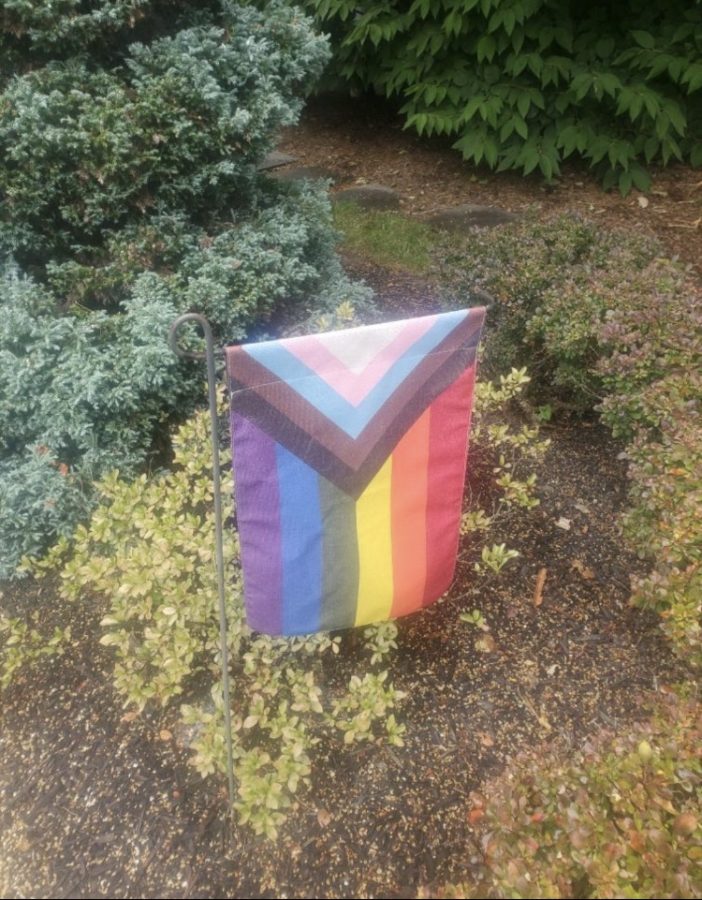What it Truly Means to be a Supportive Parent of an LGBTQ Child
October 28, 2021
I recently came out as bisexual. It was something I had questioned for a long time. There was a girl, now my current girlfriend, who made me feel a way I had never felt before. So I came out to my friends as bi. It was a great feeling until I realized I would have to tell my parents.
Thankfully, my parents were understanding when I told them about my date with a girl that Friday. I couldn’t be more grateful. I don’t know what course my life would’ve taken if my parents didn’t “agree” with who I am. The unfortunate reality is that many of us don’t have this luxury.
All around the globe, children and teens are refused and neglected by their own parents for being who they are. According to youth.gov, due to family conflict surrounding sexual orientation and gender identity, an estimated 43% of LGBTQ youth experiencing homelessness are forced out of their homes.
Unfortunately, the majority of these homeless LGBT youths ran away from their families or got kicked out. It is unfair and cruel that children likely face mistreatment at home and have to leave their families just because of who they are.
I often hear horror stories from friends about how their parents reacted to them being homosexual. Neglect, denial, emotional abuse and sometimes even physical abuse have unfortunately been common for many LGBTQ children.
Imagine: a child who once enjoyed the love of their parents is now alone and made to feel ashamed of themselves over something so incredibly difficult that they
cannot change. Speaking from experience, coming out is emotionally exhausting and draining. It’s hard to imagine children suffering through something so cumbersome with no support from the ones who are supposed to help them through hard times. But I don’t have to imagine this. It’s reality.
I started to question why so many parents are not supportive of their children. Many different answers came to mind: religion, education and childhood environment, for example. These factors can make us contemplate the different layers of accepting someone as LGBTQ and where people struggle. All of this spiraled into me wondering what it truly meant to be a supportive parent of an LGBTQ child.
Clearly, the first step would be having an open-minded attitude. Coming out can be a shock to many, so keeping a tolerant mindset can help to ease the surprise. Homosexuality and gender identity may be new to a lot of people, especially those from older generations. It means the world to a child when parents are willing to understand.
Once a parent is willing to understand their child, then it’s time for them to educate themselves about the matter. Being respectful is one thing. Actually taking time to learn about their child’s sexuality or gender identity is another. I know what it’s like to be asked a bunch of simple questions that could be answered through a Google search. Parents show true compassion by staying educated for their children, and it’s okay if things don’t make sense right away.
Something parents may do without realizing is not keeping the same energy when their child is in a homosexual relationship compared to a heterosexual one. Same goes for if their child is transgender compared to if they’re cisgender. Keeping the same energy means acting and treating their child and/or their relationship the same way as they would with any other time, no matter what their child identifies as or who they
love. It’s important that children feel supported in all aspects of their life, and if parents aren’t giving them consistent love and encouragement, children won’t feel that support.
One other thing that’s important to consider: parents should be cautious of what questions they ask their children. While some may not realize it, it’s easy for some comments to come across as invalidating or insensitive. Questioning what makes someone realize they’re gay or trans or the reasoning behind it can make children feel invalidated. At the end of the day, it’s no one’s business questioning what makes someone homoesexual or trans. People shouldn’t ever have to explain themselves.
Considering the current social climate, it is absolutely crucial that parents are up-to-date on LGBTQ current issues. How can parents support their children fully if they don’t try to understand what they’re going through? According to the Center for American Progress, more than 1 in 3 LGBTQ Americans faced some type of discrimination in the past year. If parents are indifferent to their children’s struggles because they “disagree” or aren’t accepting, there can be serious consequences.
Unsupportive parents are not just hurtful temporarily: it can have long term mental effects on children. As reported by the Center for American Progress, 1 in 2 LGBTQ Americans report having negative psychological impacts due to discrimination they faced in the past year. This is why, as a parent, being aware of what they are saying and asking their children is critical. While parents may seem supportive one day, an ignorant question or joke can feel apathetic the next.
As a parent, caring about the happiness of their children is vital. In order to do this, being a truly acceptive and supportive parent of their sexuality or gender identity is crucial. If all parents were truly supportive of their LGBTQ+ child, the world would be one step closer gay and trans equality.
My own mom, Crissy Casey, says “As parents, we should love our children no matter what, and our job is to raise them to be who they are.”
If that’s not good parenting, then I don’t know what is.








